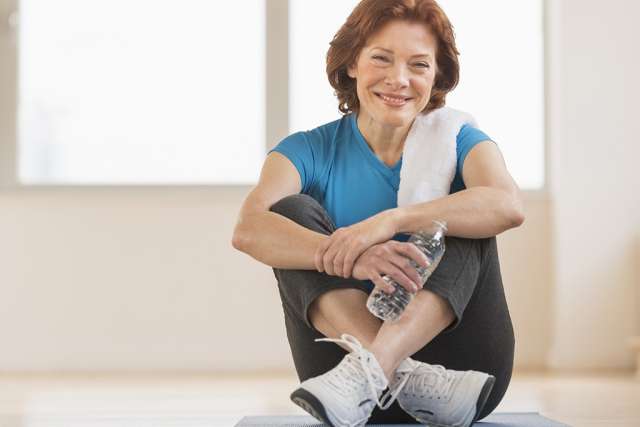Many seniors avoid exercise because they are afraid they may fall and hurt themselves. But exercising can actually reduce the risk of falls, a leading cause of emergency room visits for older adults.
Sweat-inducing exercise — defined as 30 minutes of aerobic exercise a day, five days a week — improves your balance and your ability to protect yourself during a fall. So not only can exercise reduce falls, it can lessen the extent of the injury that occurs if you do fall.
The benefits of exercise also can:
- Lower your risk of medical complications such as stroke, aneurysm and renal failure
- Improve sugar control and insulin sensitivity if you have diabetes
- Combat circulatory issues if you have peripheral vascular disease
- Improve your mood and lower your risk of depression
What type of exercise is best?
The best exercise routine is one that you feel comfortable doing and can commit to doing five days a week. Ideally, you should do aerobic exercise most days with strengthening exercises at least two days a week.
Here are some tips for finding an exercise routine you can stick with:
- Set small goals.. Losing muscle mass and strength due to inactivity happens much faster as you get older. Daina Danovitch, MD, a geriatrician at UCLA Medical Center, Santa Monica, counsels her patients: “If you don’t use it, you lose it!” So start with one or two days a week and increase your committed time incrementally as you feel more confident.
- Break up the 30 minutes. Your 30 minutes of daily exercise does not need to be consecutive. If you feel more comfortable exercising in shorter increments, you can exercise for 10 minutes, three times a day.
- Find an exercise you enjoy. Whether it’s a class, a walk with a friend or exercise videos you can do at home, you can exercise however you like as long as you’re working up a sweat!
- Armchair exercises. These can be helpful if you’re frail. March in place while seated, using light weights. Then build up to walking on a flat surface in comfortable shoes.
What if I have a medical condition?
You should always discuss an exercise program with your physician before you start. It’s especially important if you are an older adult with specific medical needs. Your doctor can help factor in special considerations when planning your regimen, particularly for those with diabetes, arthritis, balance problems and heart issues.



